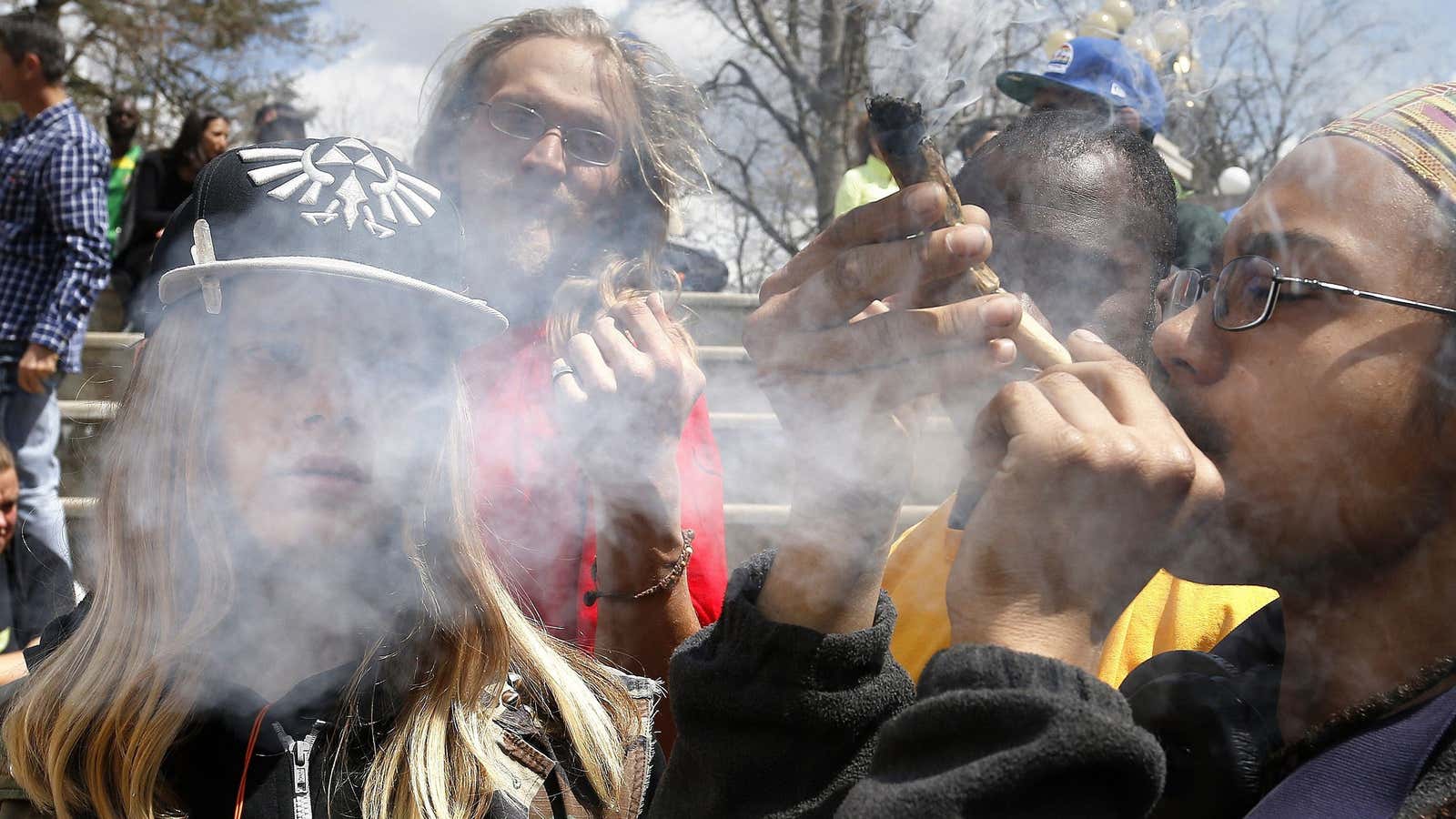Denver officials just noticed a troubling pattern in the location of the city’s marijuana businesses.
A Jan. 3 analysis by the Denver Post found that companies with pot licenses in the city, where cannabis use has been legal since 2014, are mostly in low-income neighborhoods with high proportions of ethnic minorities. Just three of those neighborhoods account for about a quarter of local marijuana-related facilities.
Residents of those areas complain about the smell that wafts out of the grows, and say they worry about a rise in crime and youth drug use.
Some opponents of pot legalization had feared this would happen. Strict zoning laws have been implemented for marijuana facilities by the state and the city as part of the assurances given to Colorado voters. Under them, marijuana businesses are not allowed to set up in residential or mixed-use neighborhoods, near schools or childcare centers.
That mostly leaves industrial and commercial areas, where more poor minorities happen to live, according to a 2014 study released by the University of Colorado, Denver. It found that under Denver’s rules, 46% of the land in low-income areas was eligible for dispensaries, while in wealthier areas that fell to 29%. In neighborhoods with mostly non-white populations, 35% of land was available for dispensaries, compared to 29% elsewhere.
Another study, which focused on medical marijuana dispensaries in 39 California cities, found a similar trend, Chris Morrison, one of its authors, told Quartz. Researchers from the Oakland-based Prevention Research Center predicted in 2014 that dispensaries would be more common in poorer areas that don’t have the resources to resist them.
Higher concentrations of “vice” businesses in low-income neighborhoods, compared to affluent enclaves, is nothing new. That’s the case for liquor stores, studies show. Researchers have also found that alcohol outlets in poor communities attract crime, and that being surrounded by liquor stores increases the risk of drinking for African Americans.
It’s too early to measure the full effect that pot establishments have in Colorado. The Denver Post reports that crime in the city has only slightly increased since retail sales began.
